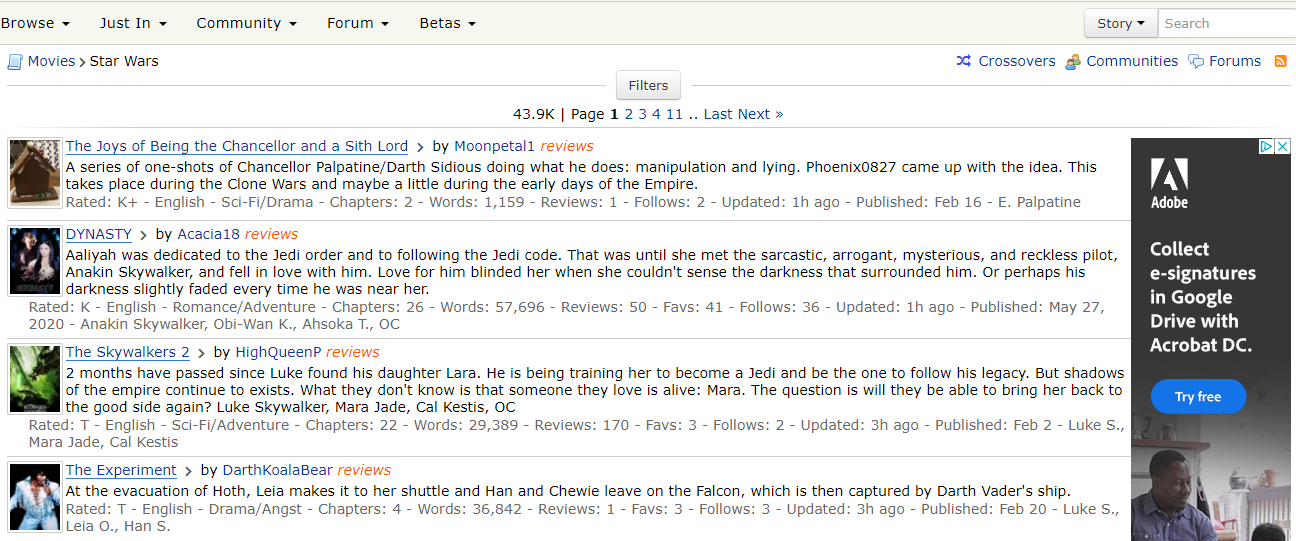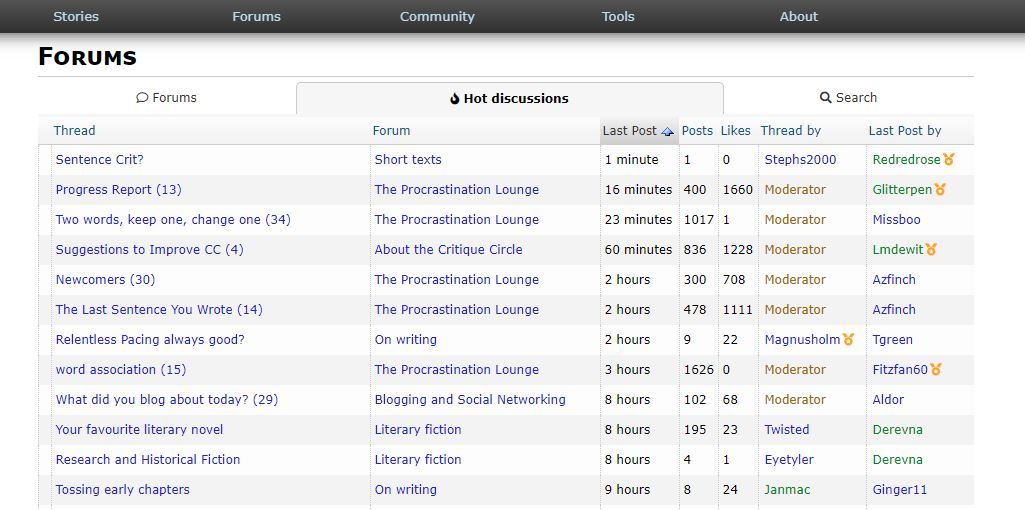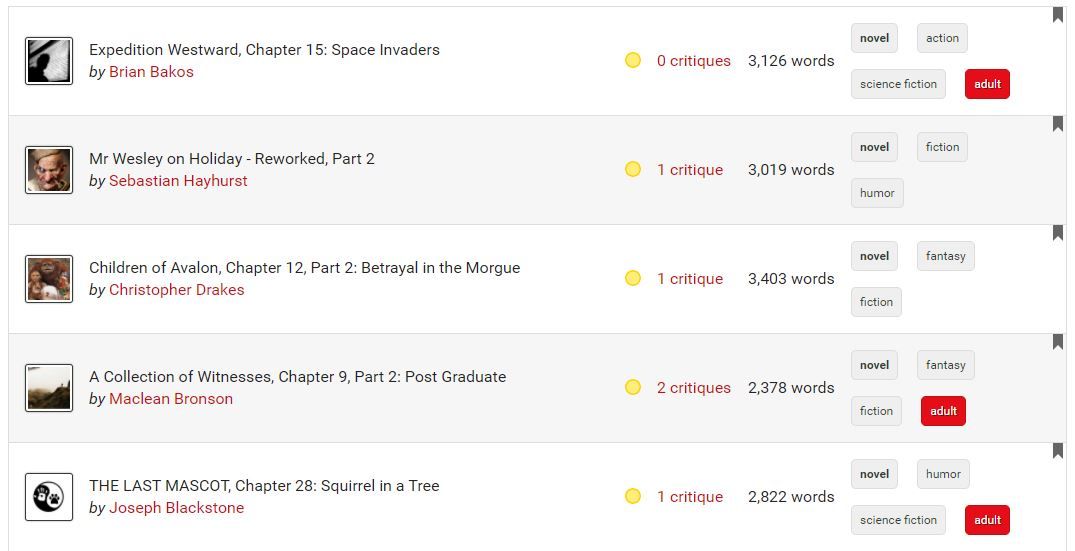Whether you're a hobby fanfiction writer, an aspiring novelist, or a published author, there is no substitute for working with others to improve your writing. Coffee houses and public libraries across the country have writers' groups and workshops, but did you know that there are online communities that offer the same feeling?
This article will explore collaborative fiction sites where you can post your fiction for comments and constructive criticism, or work directly with other writers to improve your writing.
What Is Collaborative Fiction?
When we talk about "collaborative fiction," we're talking about tools and services for working together with other writers on your writing.
For some of the websites that we talk about, this might mean posting your writing publicly for other writers to comment on. However, some of the other sites on this list give you the tools to share a document with other writers. This way, you can work together on manuscripts, take turns writing chapters, or directly edit one another's work.
1. Archive of Our Own (AO3)
Archive of Our Own describes itself as "a fan-created, fan-run, nonprofit, non-commercial archive for transformative fanworks."
The website, and its parent organization, The Organization for Transformative Works, are really more about contributing to and legally protecting the dialogues surrounding popular media, than about any individual's literary contribution. However, the site does encourage artistic growth for contributors and even promotes legal advocacy for fanwork writers.
Members of the community can follow their favorite contributors and get notifications when those contributors post, or when their favorite works are updated. Contributors, in turn, get feedback from readers that helps them hone their crafting of character and plot.
Contributors to Archive of Our Own can also participate in events and challenges that encourage contributors to meet writing and editing quotas. "Feedback Fest" encourages community members to caringly critique the works of contributors, while "Rec Fest" encourages community members to recommend their favorite works and contributors.
If you want to explore AO3, you can access most of the site without creating an account. Creating an account allows you to contribute your own works and participate in community engagement. Contributors can also choose to make their works visible only to account members. The good news is that accounts are free and easy to make.
2. FanFiction.net
FanFiction.net, formerly "FictionPress" offers basic services similar to AO3. That is, it encourages writers to post their fictional works, which often includes fanfiction about popular TV shows, books, and movies.
It also encourages community members to leave "reviews" of those works. However, it handles the social aspect a little differently.
This site doesn't have the focus on challenges and special events that AO3 does, but it does have a more advanced interface for directly communicating with other members. That includes a general forum, browsable by topic.
Be advised that FanFiction.net isn't backed by an organization like AO3, so the site looks a little more basic and there are advertisements. However, membership is still free.
3. Underlined
Underlined is a more holistic writing tool in terms of features and services. It is also more friendly for writers with more original ideas, rather than being strictly for fanfiction writers.
The website includes articles, quizzes to break writer's block, and prompts to get you started. Once you've started your work, you can explore community features, including contests and Q&As with other writers. Finally, the platform even has tools for designing covers for your works, and potentially even thinking about publishing them.
One of the more unique features of Underlined is that you unlock website features and community engagement options as you engage with other works. The more you read, write, and review other contributors' content, the more options you will have to showcase your own content.
4. Critique Circle
You can look at Critique Circle as a more streamlined version of Underlined. It still has articles to read, but there are fewer design tools, community features, and bells and whistles like quizzes. However, it retains the rewards aspect of unlocking functions through your contributions to the works of other users.
If anything, Critique Circle might take this aspect a little too far. The "Crits" that you earn by commenting on the posts of other users are required for posting, as well as editing your own content. If you want to have a prolific posting session, you have to spend a lot of time working with other community members' content first.
Critique Circle is also a lot more careful with your content than other collaborative fiction sites. The legal status of posts is different—content posted for review on Critique Circle doesn't wash up on general search engine queries. As a result, it's a more sheltered community for serious original content rather than just a forum for fanfiction.
5. Scribophile
Scribophile brings together a lot of the legal elements of Critique Circle, the educational elements of Underlined, and the community features of AO3. In the process, it does leave behind some of the fun team-building features of most of the other sites in this article.
Users are encouraged to engage with other content and contributions but aren't held to that task like with Underlined and Critique Circle.
Further, the site has on-platform resources similar to Underlined, but the resources are more serious in nature. This includes a Writing Academy of free tutorials and guides from writing professionals on how to submit manuscripts, talk to agents, and more.
The site also has contests like AO3, and many of these contests come with cash prizes. While the site's basic membership is free, you'll have to pay if you want access to even more benefits, such as the ability to post unlimited works on the platform.
Scribophile gives you the option to make posts besides works submitted for critique, and any social aspect enters this way. That said, it lacks the social aspects and forums of some of the other sites on this list.
Find What Works for You
All of the websites discussed in this article are dedicated to putting your fiction in front of other writers to help you get feedback. Some of them are better than others for workshopping content, while others are better for practicing your writing skills.
There are websites geared less toward improving your writing and more toward getting published that this article didn't explore. There is also a lot to be said for text-based social media sites, like Reddit and Tumblr, that also have active and supportive writing communities.






